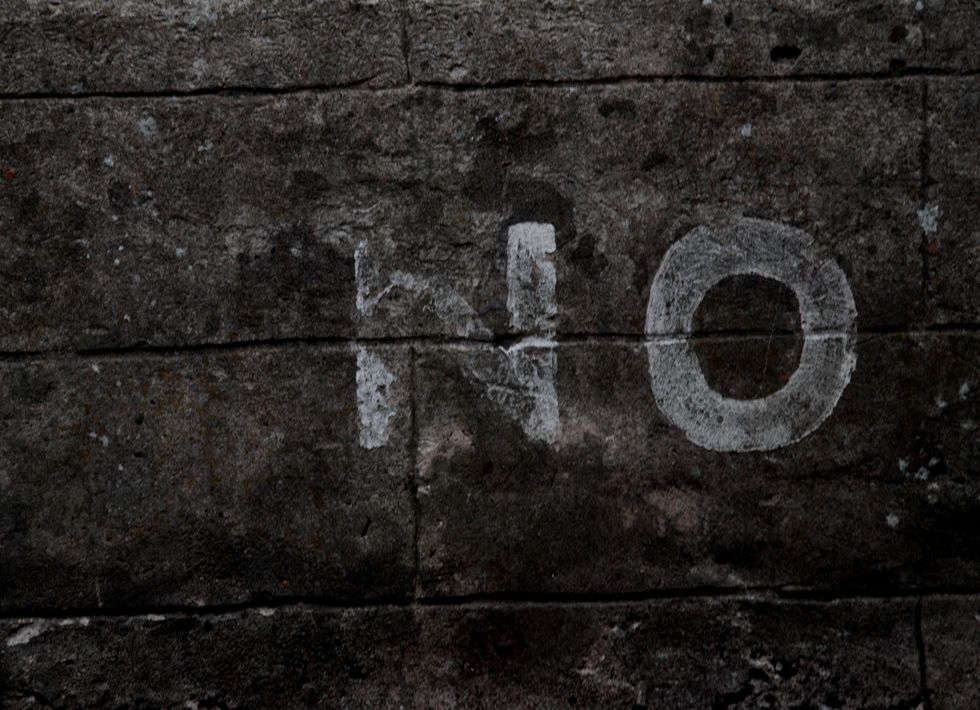Rape culture, what is it? By definition, rape culture is: rape being "normalized" in a certain setting due to social morals and attitudes. While the definition stands true, rape culture is more than it seems. Why? Most people have no realization they are promoting rape culture. In fact, rape culture has become so common it is part of our everyday lives and is only becoming worse.
But why does rape culture matter and why do we need to stop it? Letting these normal standards and morals become part of our everyday routine will not only increase sexual assault and violence but the idea that it is okay or not wrong. To end the stigma of rape culture we need to stop normalizing verbal and physical actions that promote this behavior.
A common behavior that promotes rape culture is called "blaming the victim." When a victim is explaining an experience or tragedy that occurred our first reaction is to ask a bunch of questions. And while it is normal that as humans we want to know the details, sometimes these questions target and blame victims.
For example, if a college student was explaining an experience they endured a common question a person of interest would ask is, "Were you drunk/high?" This seems like a simple question of curiosity but is part of this "blaming the victim" behavior. By asking questions like these we are implying that there is an outlying factor to which contributed to why that incident occurred.
There is never a reason that a victim should be blamed or put to fault for their own attack, and questions like these make it seem like there is a reason.
Another smaller but yet valid example is if a child was being bullied at school. We may immediately jump to conclusions and think that the child did something to cause the bullying, therefore blaming the victim for their own pain. These examples are just some of the many small day-to-day experiences that promote this behavior which is a part of rape culture.
The solution is easy but may take some self-realization. When listening to a victim do not ask questions right away, let the victim confide in you. Then when the time is appropriate, begin to prompt questions that will not blame the victim but still fill some empty holes. Such as, "Can you remember anything else that may be important?"
An additional common behavior that contributes to rape culture is apparent. Many times parents are guilty of this behavior by questioning their child's clothing choice. Now, no parent wants their child dressing almost nude but there are some things to be aware of when commenting on clothing.
First and foremost, do not make remarks about skin showing. Especially as your child grows to be an adult, they are entitled to the right to wear what they like. Modesty is kind but sometimes teenagers and adults like to show some skin and there is nothing wrong with that. What is wrong is calling them names such as: hooker, slut, whore, etc., And parents are not the only ones guilty of this.
Instead maybe ask them why they are dressed they are, or propose some suggestions without being negative. Many of the remarks we make regarding appearance contribute to the idea that someone is "asking for it" or "deserved it." Another common question asked when a victim is attacked is, "What were you wearing?" This should have no factor into why someone was harmed.
Schools are also very guilty of this behavior. Dress codes are sexist, mostly to women, making them dress strictly due to the fact it could be "distracting" to male students and teachers. But the real issue is not appearance, it's that appearance is distracting at all. Schools should be teaching students and teachers to not sexualize someone for their clothing or appearance choice.
Instead of being negative and sexualizing appearance as a society we need to allow people to express themselves without judgment or letting it come into play as a factor of fault.
Another huge issue that contributes to rape culture is not taking accusations seriously. This happens every day, from boys tugging girls hair to playing off a co-worker being inappropriate with another co-worker. When someone reports an uncomfortable and harmful act they should feel reassured that it won't happen again or at LEAST something will be done.
And when nothing is done we are condoning that behavior. As simple as it may be it still needs to be taken seriously. All rapists and sexual assaulters start somewhere, and usually somewhere small. This does not mean that your child is going to be a rapist if they pull on a playmate's hair, but they do need to know it is wrong so they won't do it again. Letting them get away with whatever they are doing is guiding them to the wrong path.
Lastly and most importantly, no means no. If there isn't a yes, it means no. We need to define consent as a society for people to understand that if there isn't a yes or if there is a no, you are not allowed to touch a person. Helping imply this will defeat rape culture and engrave what consent really is to those learning.
Teach kids, teenagers, and adults about no and let it stick. Don't let it playoff just because they never said no, or because they said they wanted it before, stand up and say no means no. Fight back and show that consent is mandatory, not an option.
Rape culture is only becoming more normal each and every day. It is our job as a society to end rape culture since we created it. Wake up and be more cautious. Let's end this terrible behavior and enforce a new one, a one where we can end sexual violence.



















